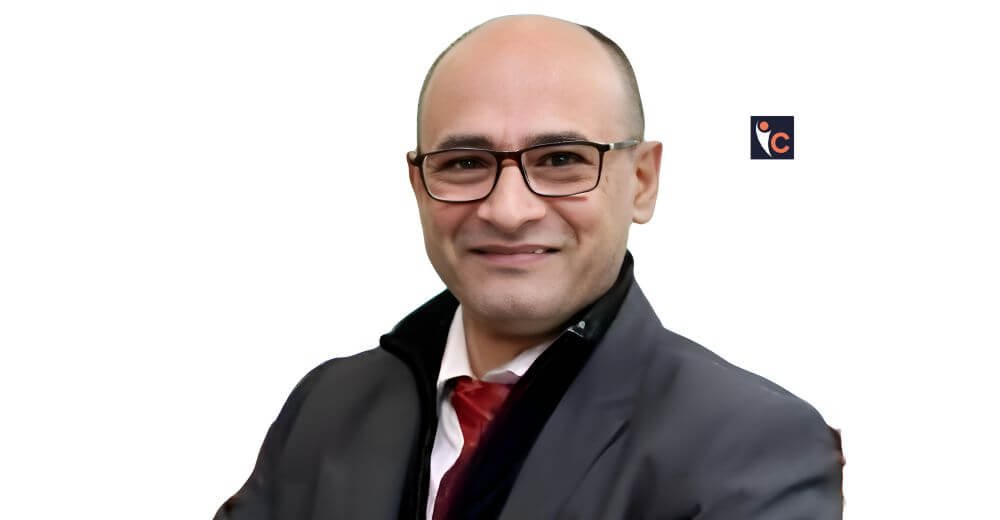Some people build careers. Others build bridges. Khaled Khraisat has done both. Working where education, industry, and new ideas come together, he saw a big gap between academic research and what businesses need. But he also saw a great chance to bring them closer. In today’s growing healthcare world, teamwork plays a crucial role. To do this, Khaled Khraisat started the Academia Industry Platform (JAIP), which connects top researchers and industry leaders to work toward shared goals.
Under his leadership, JAIP has created strong partnerships that help new ideas grow faster and become real solutions. By connecting these different groups, JAIP is changing what’s possible in healthcare innovation. In this interview, we will explore how Khraisat’s vision is turning academic research into practical products and services that benefit both the market and society, helping to drive healthcare progress in Jordan and beyond in 2025 and the years to come.
Let’s delve into the details below!
Can you tell us about your background and what inspired you to establish the Academia Industry Platform (JAIP)?
I’m Khaled Khraisat the CEO of Academia Industry Platform – JAIP company, I hold a degree in Pharmaceutical Sciences from the University of Jordan, class of 1996. My career began in sales and marketing with a leading Jordanian pharmaceutical group, where I advanced through various managerial positions. I then moved to a regional pharmaceutical company, focusing on business development across a broad spectrum of life science sectors, in alignment with the company’s diversified portfolio.
Following this, I took on a leadership role in business development at a biotech firm, where I led a team of scientists in identifying and evaluating promising market opportunities. My responsibilities also included driving the commercialization of scientific research (translating R&D outputs into tangible products) in addition to securing intellectual property rights through patent filings.
In 2018, drawing on my extensive experience in scientific research and the life sciences industry and motivated by a strong belief in the untapped potential of academic research I established the Jordan Academia-Industry Platform (JAIP), officially launched in 2019. As the Founder and CEO, I lead JAIP with a mission to bridge the gap between academia and industry, transforming academic innovations into market-ready solutions that support economic development.
What is the core mission of JAIP, and how does it contribute to advancing the healthcare ecosystem in Jordan and beyond?
JAIP aims to facilitating the transfer of valuable research outcomes and patents from academic and research institutions to the relevant industrial sectors. With a strong focus on life sciences, many of these innovations are channeled toward advancing the healthcare industry.
At the same time, JAIP actively engages with the industrial sector to identify pressing needs and challenges. These insights are translated into well-defined research proposals, which are then shared with academic researchers to encourage the development of practical, science-driven solutions.
This two-way approach not only bridges the gap between academia and industry but also creates a dynamic environment where innovation can thrive. By aligning scientific research with real-world healthcare needs, JAIP helps accelerate the development of impactful solutions that advance the industry and improve lives.
What are some of the major challenges you’ve faced while leading JAIP, and how have you overcome them?
Bridging the gap between academia and industry is a global challenge, and proving JAIP’s success wasn’t easy. We built trust by engaging each sector separately. For academia, we worked closely with researchers, administrators, and leaders, offering ongoing support in technology transfer, patenting, and commercialization—often free—earning us a strong reputation and university committee roles.
For industry, we strengthened existing ties and provided targeted support, both paid and pro bono, aligned with their goals. We also invited industry partners to university events to ensure they felt valued.
This trust-based, mutually beneficial approach has been essential to JAIP’s success in connecting academia and industry.
How has the healthcare landscape in Jordan evolved in recent years, and where do you see the most exciting opportunities for growth?
Jordan has made notable progress in the healthcare sector, enhancing both its technical capabilities and human capital, while also advancing related industries. Among the emerging opportunities, digital health stands out as a key area for innovation and growth.
Additionally, the field of Contract Research Organization (CRO) sector also holds significant promise. With a solid scientific foundation and well-developed healthcare infrastructure, Jordan is well-positioned to become a regional hub and secure a competitive share in the global CRO market.
JAIP operates at the intersection of education, research, and healthcare. Can you share a success story that highlights this integration?
JAIP has successfully connected universities and companies through many funded projects aimed to upskilling talent and encourage the use of modern technologies in healthcare. These projects focus on training researchers, students, and professionals to meet industry needs and standards.
At the same time, JAIP supports academic initiatives like student projects, research, and patents that solve real healthcare problems. By working closely with both academia and industry, JAIP helps transform these ideas into practical solutions for the market and society.
This balanced approach of fostering innovation and building capacity has made JAIP a trusted bridge between science and industry, significantly contributing to healthcare advancement in Jordan.
In what ways is JAIP leveraging digital transformation or technology to reshape healthcare education or practice?
During the COVID-19 pandemic, JAIP adapted quickly by using digital technologies to collaborate remotely with partners. This allowed us to manage several funded projects with academic institutions, including:
- An Oxfam-funded Social Entrepreneurship initiative
- The EU-funded Bestmedgrape project supporting startups and SMEs
- An EU project for capacity building in Syria’s healthcare sector
The pandemic accelerated digital transformation globally and locally, making it essential. JAIP embraced this shift to advance projects across sectors, especially healthcare.
To reshape healthcare education and practice through digital tools, JAIP has:
- Become a verified provider for major international programs like the Jordan ISSF – World Bank, EU, US, and Arab organizations.
- JAIP plays a key role in the Drug Security Conference, promoting sustainability in both local and regional healthcare sectors.
- Built strategic partnerships with universities and healthcare colleges via agreements and MOUs.
- Collaborated with healthcare industry partners to offer innovative services under formal agreements.
What advice would you offer to emerging healthcare entrepreneurs or visionaries who want to make a lasting impact in this sector?
The healthcare sector is highly regulated and competitive, so entering it requires patience and a long-term vision. To succeed, focus on addressing real needs by connecting innovation with practical solutions. Build strong partnerships across institutions and individuals, embracing digital technologies while keeping patients at the center. Stay adaptable and persistent; these qualities are essential to making a lasting impact.





